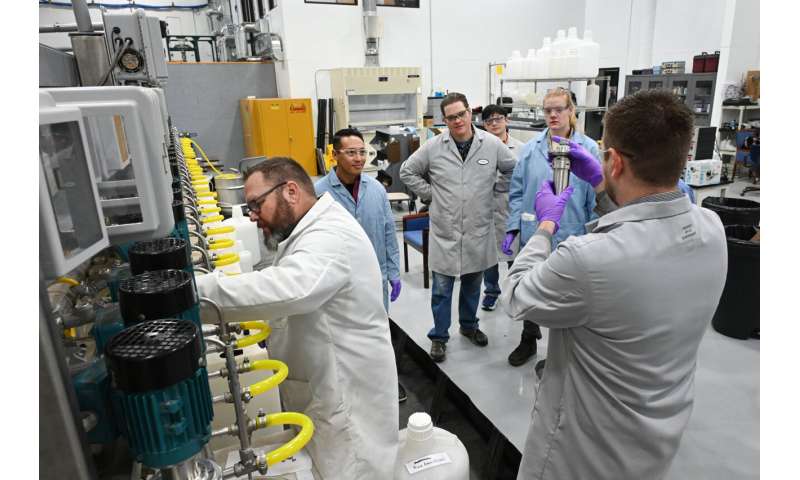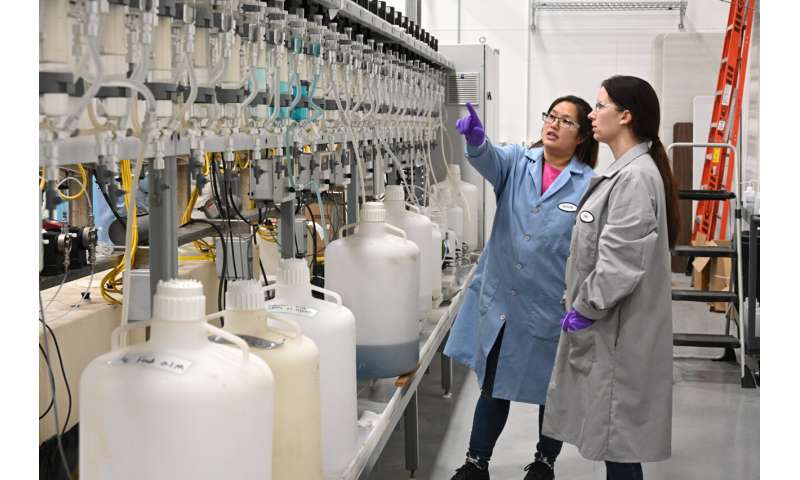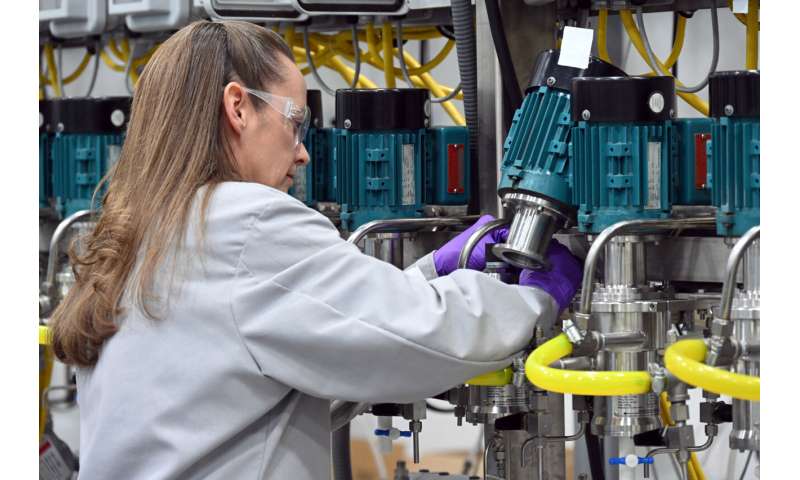Nuclear energy experts train researchers to meet future nonproliferation challenges

As nuclear energy is increasingly recognized as a vital component of the clean energy transition, American companies have answered the call with dozens of new reactor and fuel designs.
But the nation's nuclear energy industry is facing a decline in skilled workers to build and operate these technologies. Without action, the U.S. stands to lose its edge in nuclear energy innovation to foreign governments.
A skilled workforce is essential to reestablish U.S. influence in nuclear energy. That's especially true of workers with the knowledge and experience to understand proliferation risks well enough to develop and implement safeguards tailored to advanced reactor designs and their associated fuel cycles.
Idaho National Laboratory is no exception. Eight internationally recognized nuclear nonproliferation and fuel cycle experts have recently retired, and an additional seven experts are expected to retire in the next five years.
In late 2023, INL hosted researchers from two national laboratories—Savannah River National Laboratory and Pacific Northwest National Laboratory—to learn about nuclear nonproliferation and fuel cycles. The researchers gained expertise and hands-on experience on a recently installed solvent extraction system designed for fuel cycle separation processes.

At INL, the researchers developed skills on a solvent extraction system like one that will be installed in the Beartooth test bed, which will include enhanced instrumentation and monitoring equipment to support a variety of chemical separation processes. The test bed is set to begin operations at INL's Fuel Conditioning Facility toward the end of fiscal year 2026.
"Staff from Savannah River National Laboratory, Pacific Northwest National Laboratory and INL were able to gain valuable expertise on the same solvent extraction system that will be used in Beartooth," said Kevin Lyon, a senior technical advisor on fuel cycle science and technology at INL.
"Solvent extraction is a key component of aqueous fuel processing in which the fuel's constituent components are separated. Cultivating this proficiency is an essential element of developing nonproliferation competencies for the long term."
Researchers in the mentorship program are also installing enhanced instrumentation and monitoring equipment for Beartooth.
The data will be used as inputs for Beartooth's "digital twin," a virtual version of the test bed. The digital twin will operate in parallel with the real test bed, receiving information from its physical counterpart that will be incorporated into a vast dataset designed to help fine-tune new monitoring and safeguards approaches for fuel processing activities.
The twin will help provide solutions for nonproliferation decision-making, material diversion and misuse analysis, as well as characterization and detection of nuclear material processing operations.

Workforce development at INL is also bolstered by partnering senior staff members with young professionals in the field. Early-career staff members are leading design efforts for Beartooth under the mentorship of INL's more experienced experts, promoting knowledge preservation and putting the next generation of the workforce in the best possible position to succeed.
"The NSP recognizes the need to sustain and grow INL's workforce expertise through targeted investments that will help enable the continued success of the lab's clean energy and national security missions," Lyon said. "The Athena Initiative has been instrumental for INL's workforce development, building a multi-disciplinary team of 36 scientists and engineers in its first year."
INL is prepared to anticipate and respond to evolving threats and opportunities in the nuclear fuel cycle, addressing nonproliferation challenges today and well into the future.
Provided by Idaho National Laboratory